Tips on How to reduce Androgens in Female?
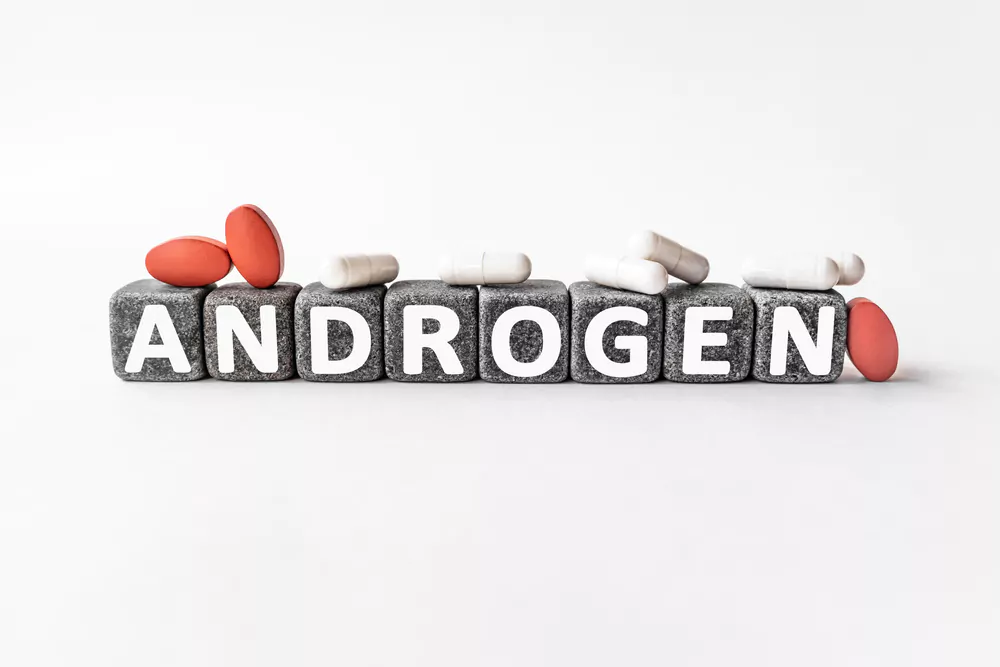
Androgens are a group of steroid hormones, including testosterone (male hormones), that play a crucial role in both male and female reproductive health. However, elevated levels of androgens in women can lead to a variety of symptoms and health issues. This comprehensive guide will discuss the causes of high androgen levels in women, the related health problems, and effective strategies to reduce androgens, thereby improving overall health and well-being.
1 Causes of High Androgens in Women
Polycystic Ovary Syndrome (PCOS)
Polycystic ovary syndrome is a hormonal disorder affecting women of reproductive age. One of the primary characteristics of PCOS is that ovaries produce elevated androgens, which can cause a range of symptoms, including abnormal hair growth, irregular periods, and acne. Women with PCOS often have insulin resistance, a condition where the body’s cells do not respond well to insulin, leading to high blood sugar levels. This, in turn, can stimulate the ovaries to produce more androgens.
Adrenal Glands
Adrenal glands, located above the kidneys, produce various hormones, including adrenal androgens. If the adrenal glands produce too much testosterone or other androgens, it can lead to androgen excess in females.
Insulin Resistance
Insulin resistance is not only a risk factor for PCOS but can also contribute to high androgen levels in women without PCOS. High insulin levels can stimulate the ovaries and adrenal glands to produce more androgens.
2 Symptoms of High Androgens in Women
Hirsutism
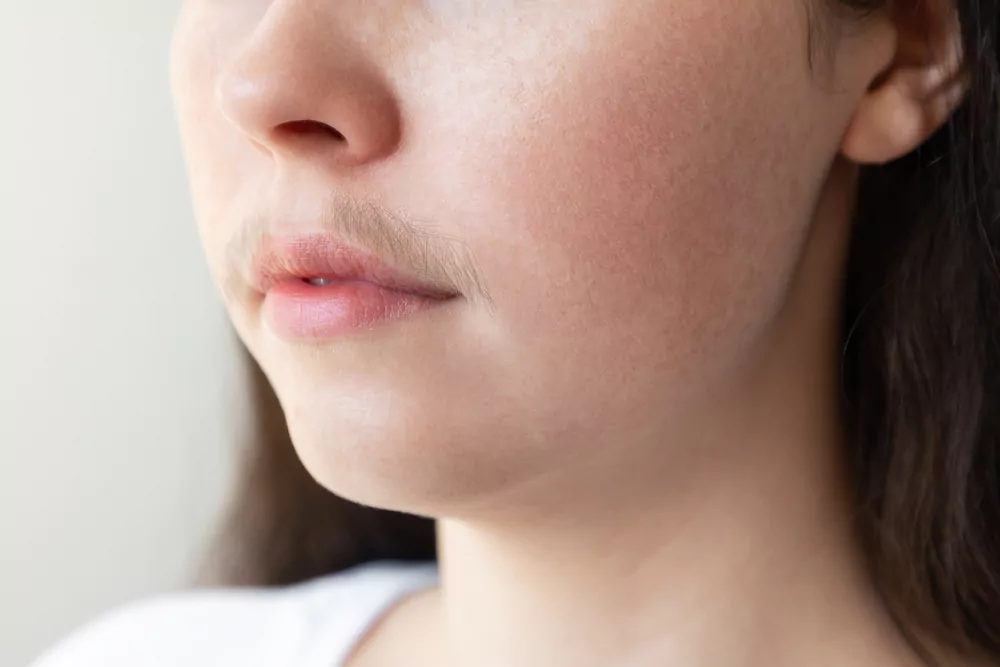
Excessive hair growth, particularly facial hair growth, and excess body hair are common symptoms of high androgens in women. Elevated androgen levels can stimulate hair follicles, leading to abnormal hair growth patterns.
Acne
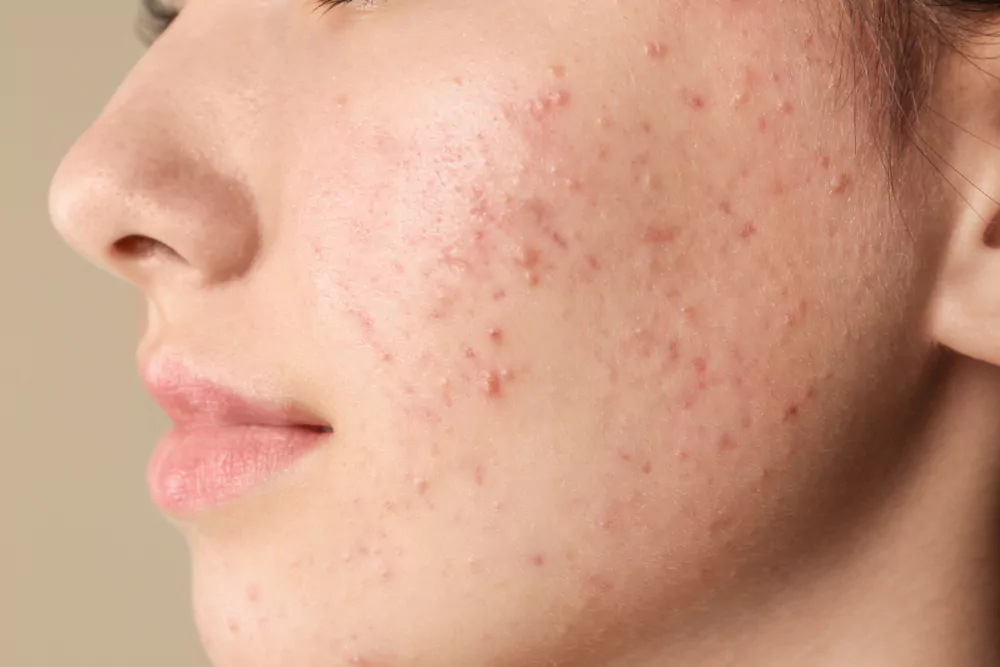
Androgen excess can cause the sebaceous glands in the skin to produce more oil, leading to acne breakouts.
Irregular Menstrual Cycles
High androgen levels can disrupt the menstrual cycle, causing irregular periods or even amenorrhea (absence of menstruation).
Hair Loss
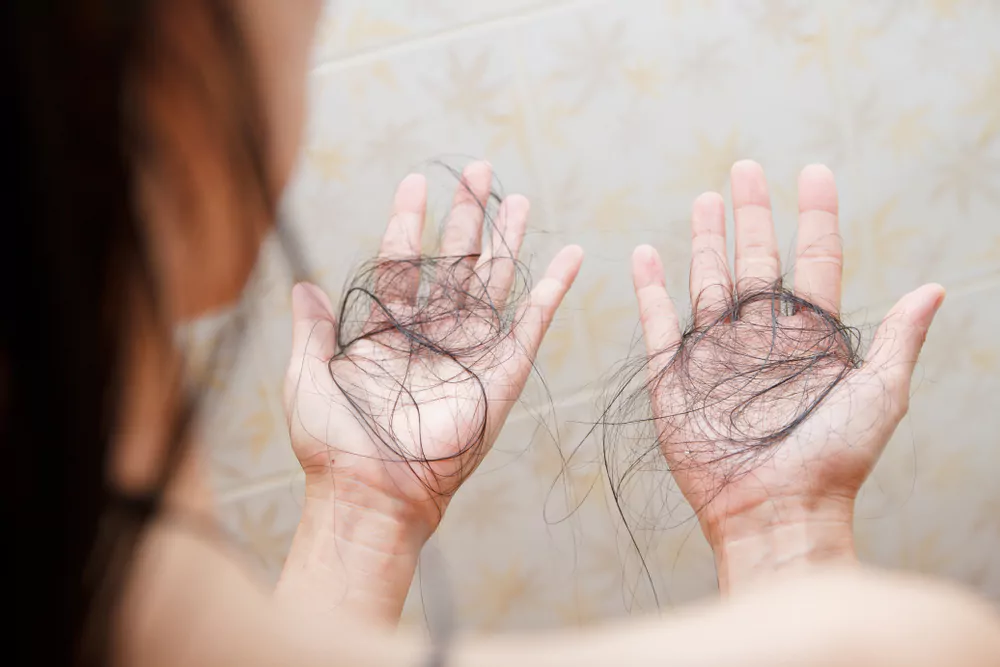
Androgen excess can lead to male-pattern hair loss in women, known as androgenetic alopecia.
3 Strategies to Reduce Androgens in Females Naturally
Maintain a Healthy Weight
Achieving and maintaining a healthy weight can help reduce androgens in women androgens, as fat cells can produce androgens. Weight loss can also improve insulin sensitivity, which can lower androgen production.
Follow a Healthy Diet
A balanced diet that includes whole grains, lean proteins, fruits, and vegetables can help maintain healthy blood sugar levels, thereby improving insulin resistance and reducing androgen production. Consuming fatty fish rich in omega-3 fatty acids can help lower inflammation and improve hormonal levels.
Exercise Regularly

Regular physical activity can help improve insulin sensitivity, reduce androgen levels, and alleviate PCOS and other symptoms. Exercise can also help maintain a healthy weight and promote overall well-being.
Vitamin D

Optimal vitamin D levels are crucial for bone health and overall well-being. Research suggests that vitamin D supplementation may help treat PCOS symptoms by improving insulin resistance and reducing androgen levels.
Spearmint Tea

Some clinical trials suggest that spearmint tea has anti-androgen effects and may help reduce free testosterone levels in women with PCOS or hirsutism. Drinking two cups of spearmint tea daily may help lower androgens and alleviate symptoms like excessive hair growth.
Flax Seeds
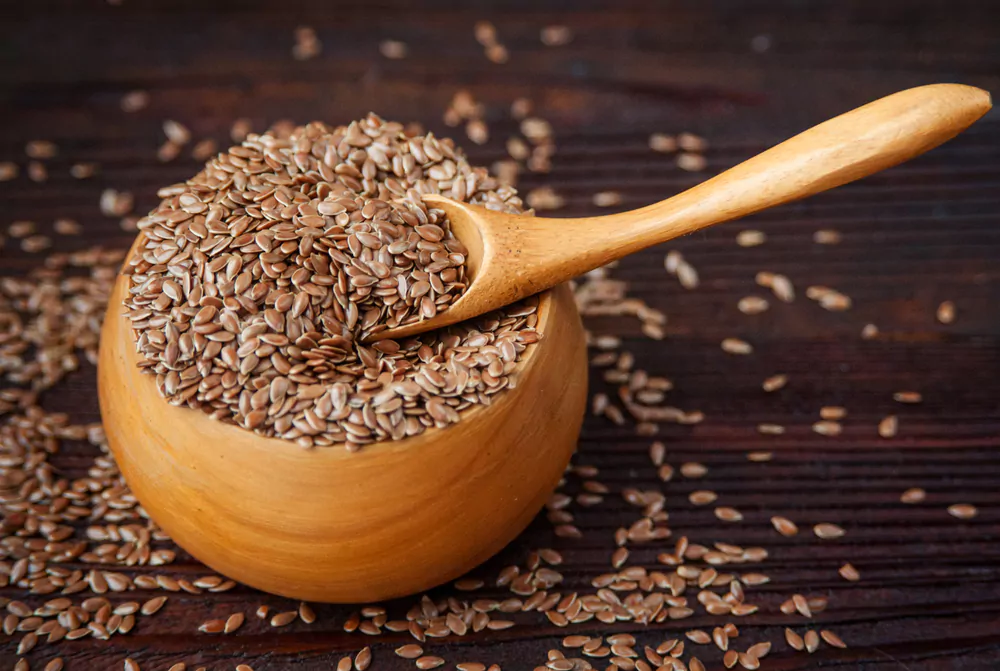
Flax seeds contain lignans, which can bind to sex hormone-binding globulin (SHBG) and reduce free androgen and testosterone levels together. Flaxseed supplementation has been shown to improve menstrual regularity and reduce androgen levels in women with PCOS. Incorporating ground flax seeds into your daily diet may help lower androgens naturally.
4 Medical Treatments for High Androgens in Women
Anti-Androgen Medications
In some cases, doctors may prescribe anti-androgen medications to help reduce androgen levels and treat symptoms like hirsutism and acne. Some common anti-androgen medications include spironolactone, flutamide, and cyproterone acetate. It is essential to discuss the potential benefits and side effects of these medications with your healthcare provider.
Birth Control
Oral contraceptives, commonly known as birth control pills, can help regulate sex hormones during the menstrual cycle and reduce androgen production in women with PCOS or other hormonal disorders. Birth control pills containing a combination of estrogen and progestin can lower the levels of free testosterone and luteinizing hormones, ultimately reducing androgens.
Insulin-Sensitizing Medications
For women with insulin resistance, medications like metformin can help improve insulin sensitivity, thereby reducing androgen production and alleviating PCOS symptoms. Metformin can also help regulate menstrual cycles and improve fertility in some women.
5 Monitoring Androgen Levels
Regular blood tests to measure total testosterone, free testosterone, and other androgens can help monitor treatment progress and ensure that androgen levels remain within normal ranges. In addition, healthcare providers may have a blood test to also assess insulin and cholesterol levels, as well as other markers of reproductive health, to provide a comprehensive evaluation of a woman’s hormonal health.
6 Wrapping Up
High androgen levels in women can be a source of significant physical and emotional distress. By adopting a healthy lifestyle, including a balanced diet and regular exercise, women can effectively reduce excess androgens and improve their overall well-being. In some cases, medical treatments may be necessary to manage elevated androgens and related symptoms. It is essential to work closely with a healthcare provider to develop an individualized treatment plan that addresses the unique needs of each woman.
Community Q&A
About This Article
This article has been viewed 533 times.



